
OR
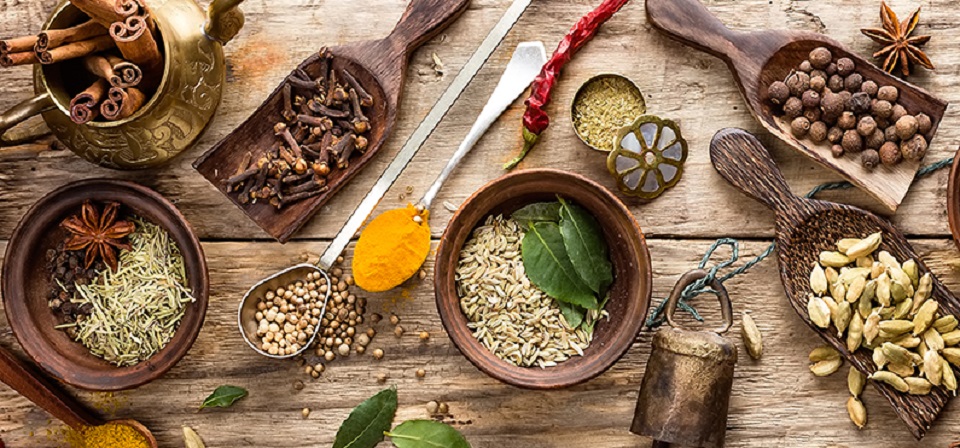

Dr Prerok Regmi
The author is a Postgraduate Scholar at Rajiv Gandhi University of Health Sciences India and Former Research Officer at National Ayurveda Research and Training Center, Kirtipur, Nepaldrregmiprerok@gmail.com
More from Author
Ayurveda has sustained many moments like this pandemic and other health crisis. Our generation deserves to benefit from it.
The world has witnessed a rapid upsurge of infections relating to novel coronavirus amidst this ongoing global pandemic which has created an incessant wave by overwhelming public health systems and failing the multidisciplinary approach of crisis management. A large number of clinical trials are being conducted to contain the spread of this virus as there is no potential experiment of a vaccine against Covid-19 till date. Meanwhile, the South Asian initiatives on curing the morbidity with the Ayurveda and oriental medicinal measures have contributed to enhancing immunity.
It is reported that symptomatic patients have been benefiting significantly from Traditional Chinese Medicine (TCM). There is a shred of compelling evidence on this intuition of herbal medicines being much beneficial on the relief of severe symptoms, control of fungal infections and even avoiding the mortality. During the early outbreak of this disease in China, the precautionary public health measures including controlled observational studies and randomised clinical trials were taken into consideration. They were basically carried out during home and designate-unit isolation based on community prevention and control. Such interventions were later concluded to be much effective and became a beacon of efficient interventional strategy for other countries. Various clinical trials related to the complementary treatment therapy registered in the research database of the World Health Organization (WHO) have shown remarkable improvement on curing the disease.
There are lots of similarities in managerial approach between TCM and Ayurveda which have to be understood as a valuable medicinal measure while responding against Covid-19. Kerala, the southern state of India, set the example by containing the spread of the virus through AYUSH medicinal systems. India is now considering its overall strategic plan for multiple researches on these sectors.
There are only a few controlled clinical trials being conducted for any medicinal measures relating to Ayurveda (with dose defined in medical textbooks). It clearly shows that concerned authorities and stakeholders have to consider a lot of steps for the standalone modality of such measures on Covid-19 treatment.
There are fewer adverse drug events found to be associated solely with the use of medicinal formulations based on Ayurveda especially for short term uses. Any untoward events resulting from the use of such formulations should be viewed with close proximity and cautions. Nevertheless, the use of time-tested measures prescribed by health experts also should not be discouraged. Most of the Ayurveda practice is based on signs, symptoms and dose of therapeutics and those unusual effects are properly considered with the long run of clinical experience and practice. Any unusual suspect has to undergo the reporting, signal detection and judgement through National Pharmacovigilance channel. Malingering, fabrication, hypothetical, false claiming should not be entertained by any medical fraternity (whether it is related to Ayurveda or its alternative) to maintain interdisciplinary medical etiquette.
Ayurveda itself is a part of the National Health System of Nepal. So far, Province 5 has demonstrated its eagerness for its own state-level prevention and managerial approach on containing the spread of the virus through such medicinal measures. Other provincial governments have also prioritised the use of such steps with the aid of the Interim Protocol of Department of Ayurveda and Alternative Medicine. However, it is learned that there is no federal support for its proper implementation and evaluation of its implementation.
How can Nepal perform appreciable immunological research work? How many molecular dockings has it attempted for drug discovery? The concerned authorities and national health research leaders are not even ready to listen to such questions.
It is evident that Nepali sociocultural influences have enhanced the quality of life. The time-tested clinical application in Nepali society can be promoted. Though this knowledge may not have scientific validation with rigid methods, the global trend of drug discovery and innovation seems to have been inspired basically from such measures. Ayurveda and oriental medicinal measures together with sociocultural takeaways need to be considered as a baseline.
Nobel laureate Tu Youyou cutoffs the multiple trials with the knowledge of TCM for the discovery of the Artemisinin and Dihydroartemisinin which has gifted the valuable extract of Artemisia annua L, traditional Chinese antimalarial drug. Artemisinin is said to be a potential drug against Covid-19. The invention of immunomodulatory of Tinospora cordifolia (Gurjo), Nobel conceptual combination of Piper nigrum, Piper longum, and Zingiber officinale (Ginger) to form Trikatu, Curcumin longa (Besar), Ocimum sanctum (Tulsi), Withania somnifera (Ashwagandha) for antiviral drugs is the gift of Ayurveda.
Ayurdveda has sustained many moments like this pandemic and other health crisis. Our generation deserves to benefit from it. There should be collaboration between Ayurveda and oriental medicinal measures. Meanwhile, the outcome will depend on how much concerned authorities and stakeholders believe in such an approach to tackle and prepare for the frightening moments of Covid-19. Researchers and intellectuals of this sector need to venture a step toward for collaboration.
The author is a Postgraduate Scholar at Rajiv Gandhi University of Health Sciences India and Former Research Officer at National Ayurveda Research and Training Center, Kirtipur, Nepal
drregmiprerok@gmail.com
You May Like This
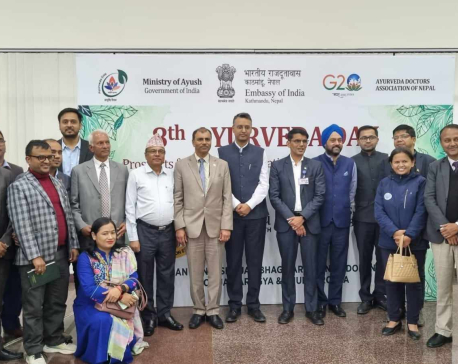
Promoting Collaboration in Ayurveda between Nepal and India
In a significant stride toward the promotion and development of traditional medicine, particularly Ayurveda, the Embassy of India in Kathmandu... Read More...
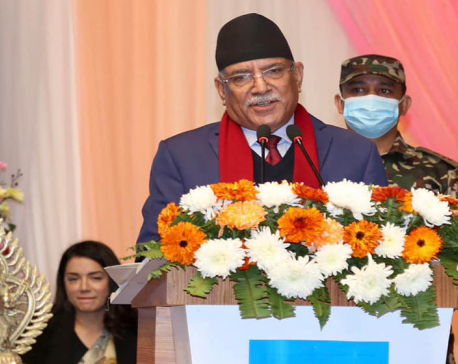
Nepal is ideal for development of Ayurveda: PM Dahal
KATHMANDU, March 3: Prime Minister Pushpa Kamal Dahal has stated that Nepal is an ideal location for Ayurveda and emphasized... Read More...

Committee formed to conduct study on yoga science, Ayurveda submits report
KATHMANDU, Aug 19: A committee formed to conduct a study on yoga science, naturopathy, Ayurveda and medicinal herbs has submitted... Read More...
Just In
- KMC to organize a month-long skill fair from May 1
- Birgunj Metropolis collects over Rs 360 million in revenue
- NEPSE plunges below 2,000 points after one and a half months; daily turnover declines to Rs 2.10 billion
- AI Index Report-2024: AI still behind humans on complex tasks like competition-level mathematics
- Daiji-Jogbudha road construction at snail’s pace
- Govt fails to adopt podway technology despite its potential in Nepal
- Jhulaghat border crossing in Baitadi to remain closed from this evening
- Universities will be free from partisan interests: Education Minister








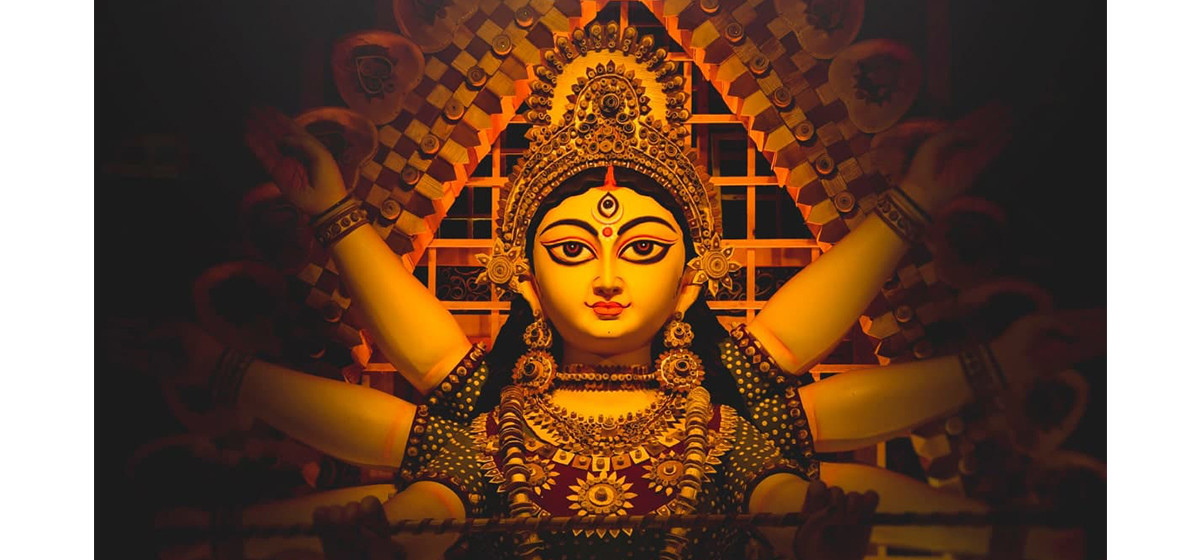



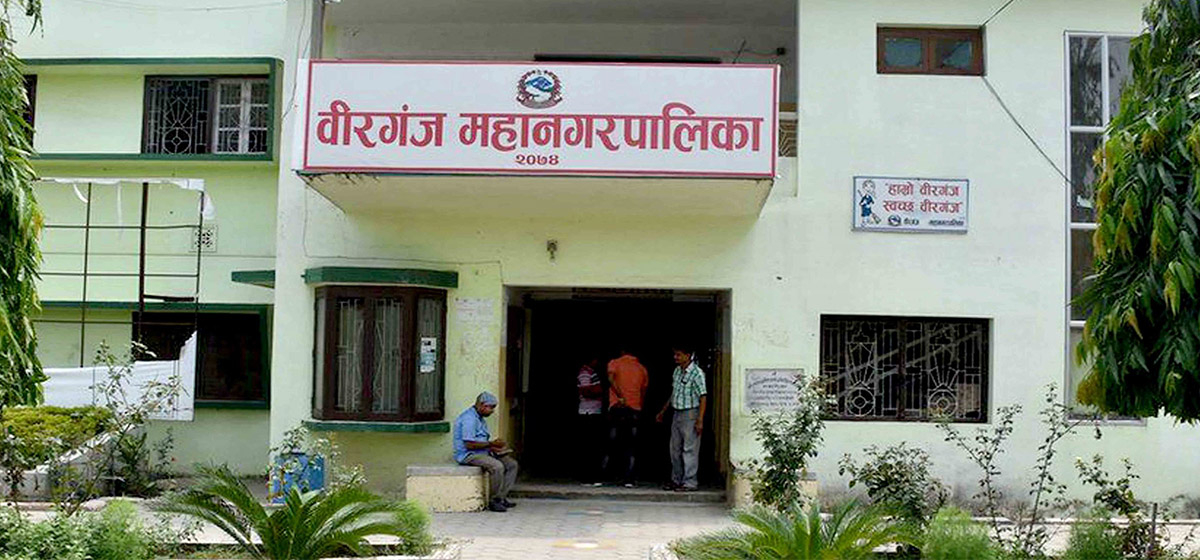


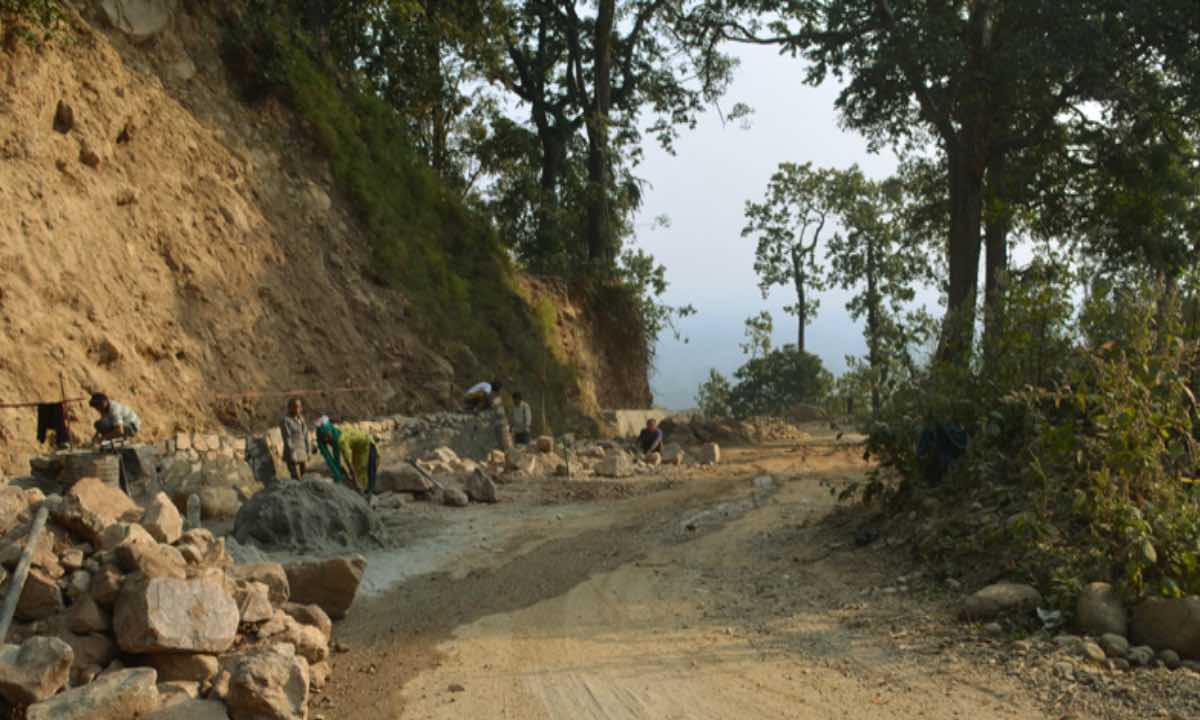
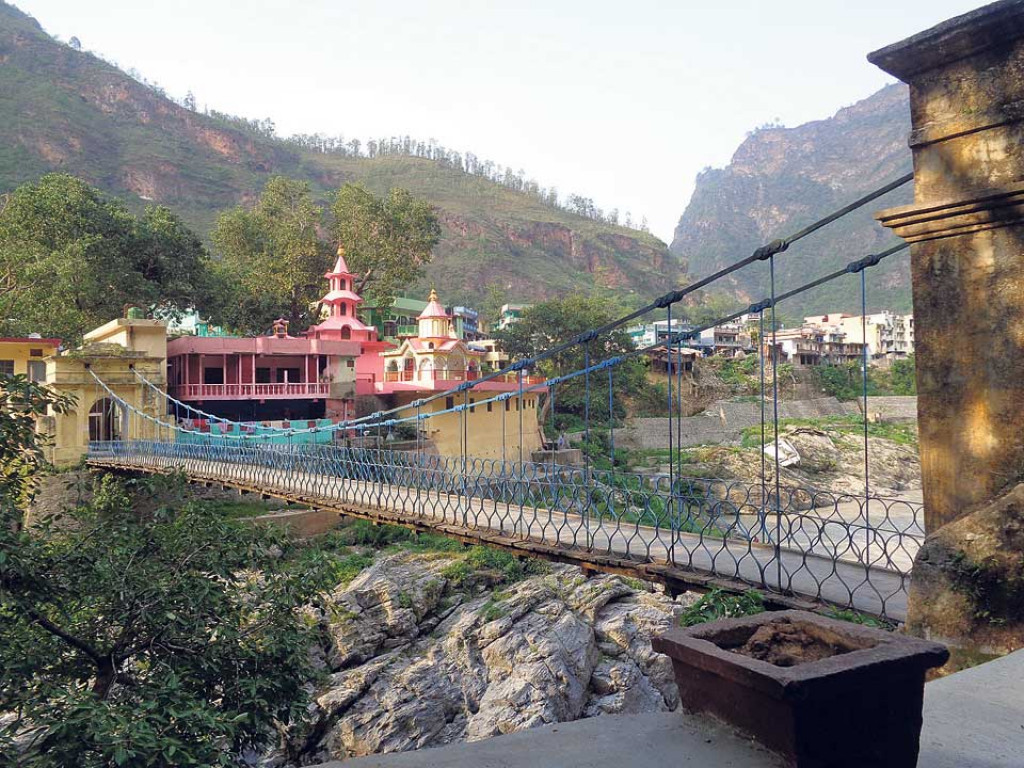
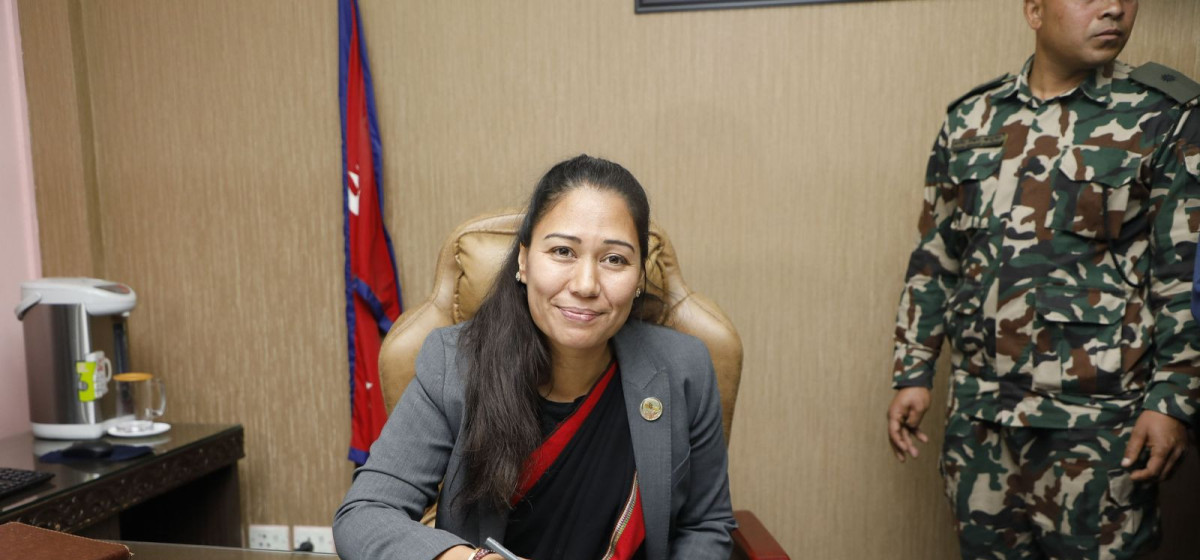
Leave A Comment